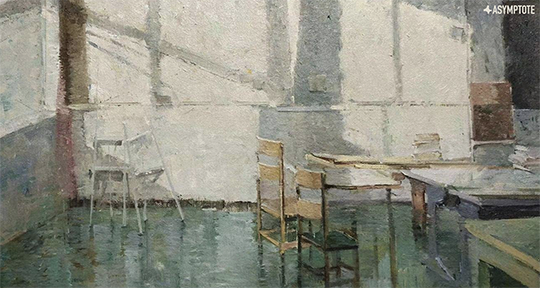Where did you first encounter translation—at home, in a classroom, online? In the following essay, Kena Chavva reflects on her experience prompting high school students to consider their own interactions with language and translation, and the ways both shape their lives and the world around them. Throughout the course, she and her students delved into questions of authenticity and identity, of faithfulness and creativity, seeming always to come back to concerns of originality: translation or not, how can we make something that is truly our own?
It’s not uncommon to hear teachers speak of the joy in teaching something that they, as individuals, love. I had experienced something akin to this in my first year of teaching high school English—I adore Frankenstein and have an abiding affection for Macbeth, and when I taught those texts, it was clear to both me and my students that we were having a better experience of the literature and one another than we’d had with The Canterbury Tales some several months earlier. But what I’ve always found less commonly discussed is how soul-crushing it is to teach something you deeply love when your students aren’t responding to it the way you hope they will.
For me, that text was an excerpt from Pascale Casanova’s 1999 book The World Republic of Letters. The first chapter, titled “Principles of a World History of Literature”, outlines some of the hidden rules that govern the world’s literary economy:
In thrall to the notion of literature as something pure, free, and universal, the contestants of literary space refuse to acknowledge the actual functioning of its peculiar economy, the “unequal trade” (to quote Braudel once more) that takes place within it.
Casanova goes on to explain how “Literary value therefore attaches to certain languages” and that “…literature is so closely linked to language that there is a tendency to identify the “language of literature”—the “language of Racine” or the “language of Shakespeare”—with literature itself”. When I first read this very same chapter as a junior in college, it felt the way that education should feel: like you were presented with a framework through which to understand your lived experiences.

